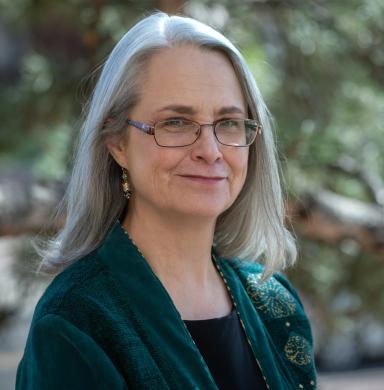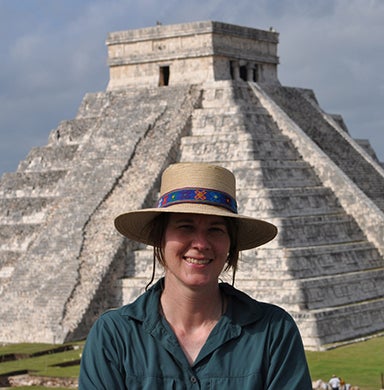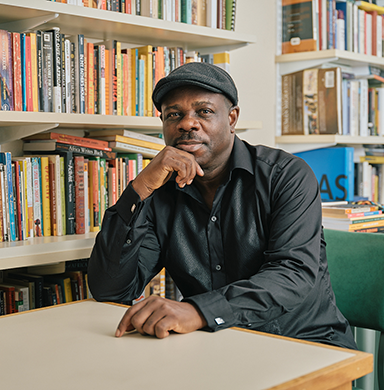Stories that Speak to Us: CAHSS Faculty Summer Reading and Listening Picks

Stories told through various mediums can inspire and empower, connecting us deeply and reflectively with our personal and collective experience in ways that often reverberate throughout our minds, lives and hearts. As part of our “Stories that Speak to Us” series, the College of Arts, Humanities & Social Sciences (CAHSS) Newsroom asked CAHSS faculty members for their picks on stories to savor on long summer days and warm summer nights.
Alejandro Ceron, associate professor; chair, Department of Anthropology
These days, every time I have a chance to read for pleasure, my first inclination is to re-read one of the books in Louise Erdrich's "Love Medicine" series. Although they were not written as a book series per se and each of them reads as a stand-alone novel, they create a fascinating world that connects stories through a fictional North Dakota Ojibwe reservation and the intersecting lives of two Ojibwe families. You can start with any of the twelve books or you could start in order of publication with "Love Medicine" (1984), or in chronological order with "Tracks" (1988). When reading any of the novels, you will get immersed into the vivid world Erdrich has created, enjoy her talent for storytelling and get to know complex and memorable characters.
For reading with my teenage children, I’ve been turning to Andrea Warner's "Rise Up and Sing! Power, Protest, and Activism in Music" (Greystone Books, 2023) and listening to its sister Spotify playlist. This is a book written for teenagers — it is short and includes lots of illustrations and visual aids — and explores the connection between songs and social change in the United States and Canada. The book introduces some iconic artists and songs from the 1950s to the 2020s. It is organized into eight chapters, each corresponding to eight areas of activism: the climate emergency, Indigenous rights, civil rights, disability rights, 2SLGBTQIA+ rights, gender equality, the peace/anti-war movement and human rights. I appreciate the author's idea and effort, and I especially enjoy the conversations it has sparked with my kids.
Sandra Dixon, associate professor; chair, Department of Religious Studies
I recommend Mara Benjamin’s “The Obligated Self: Maternal Subjectivity and Jewish Thought,” Indiana University Press, 2018. This book is a marvel of compact, compelling, and down-to-earth reflection on how a person today pays attention to, objects to, reinterprets and lives her life and her religious tradition. It may not bear a summer-fun title, but it is a very portable, thought-provoking read that you may want to linger over.
Scholars of Augustine routinely call Peter Brown’s, “Augustine of Hippo: A Biography,” University of California Press, New ed. 2000, a book you can take to the beach. Augustine (354-430) is infuriating, mesmerizing, time-bound and still influential in fields like the study of just war and state-violence, ethics, theology and literature. Brown’s beautifully written volume leads the reader gently into the great north African’s life and thought.
Three of my favorite podcasts for broadening my horizons are Colorado Public Radio’s ¿Quién Are We? (which discusses Latine life and culture in Colorado), WNYC’s Notes from America (which pursues “the unfinished business of our history, and its grip on our future”) and The Tongue Unbroken (which intertwines the importance of language with ways of life and life experiences of indigenous peoples of North America).
On a more personal note, a couple of years ago I rediscovered my best friend Ross from ages four to seven and the podcast he and his “little” sister Kathy have created with KMUW in Wichita, Kan., now picked up by NPR. You're Saying It Wrong revels in language — use, misuse, changing use, ancient roots. I don’t always agree with Ross and Kathy, but part of the fun of the podcast is that often they don’t agree with each other or the host of the podcast. Check out these suburban New Jersey exports who genuinely care about language — the workplace-friendly kind.
Annabeth Headrick, associate professor; director, School of Art & Art History
I recommend “You Dreamed of Empires” by Álvaro Enrigue. This work of historical fiction imagines the period in 1519 when Hernán Cortés and his troops entered the Aztec city of Tenochtitlan. Rather than focusing on the precise events, the story unfolds through the dreamlike, internal thoughts of the characters involved. The reader encounters a reclusive Moctezuma, an uncouth Cortés who's bereft of visionary leadership and a lieutenant who lucidly sizes up the power dynamics within the conquistadors even as he constantly contemplates his potential sacrifice by the Aztecs. In this version the outcome is unknown, leading to a fascinating and relatable psychological portrait of the participants. The crass demeanor of the Spaniards and the extravagant splendor of the Aztecs portray both sides in their all too human nature.
Maik Nwosu, professor; chair, Department of English & Literary Arts
I recommend “Terminations” by Graham Foust (poetry),” “God's Scrivener: The Madness and Meaning of Jones Very” by Clark Davis (critical study), “Comeback Death” by Jennifer Soong (poetry) and “Wandering in All Directions of this Earth” by Loisa Fenichell (poetry). These books were published by our faculty and graduate students during this academic year and I think that all of us — students and faculty — should take an interest in publications by members of our academic community.






